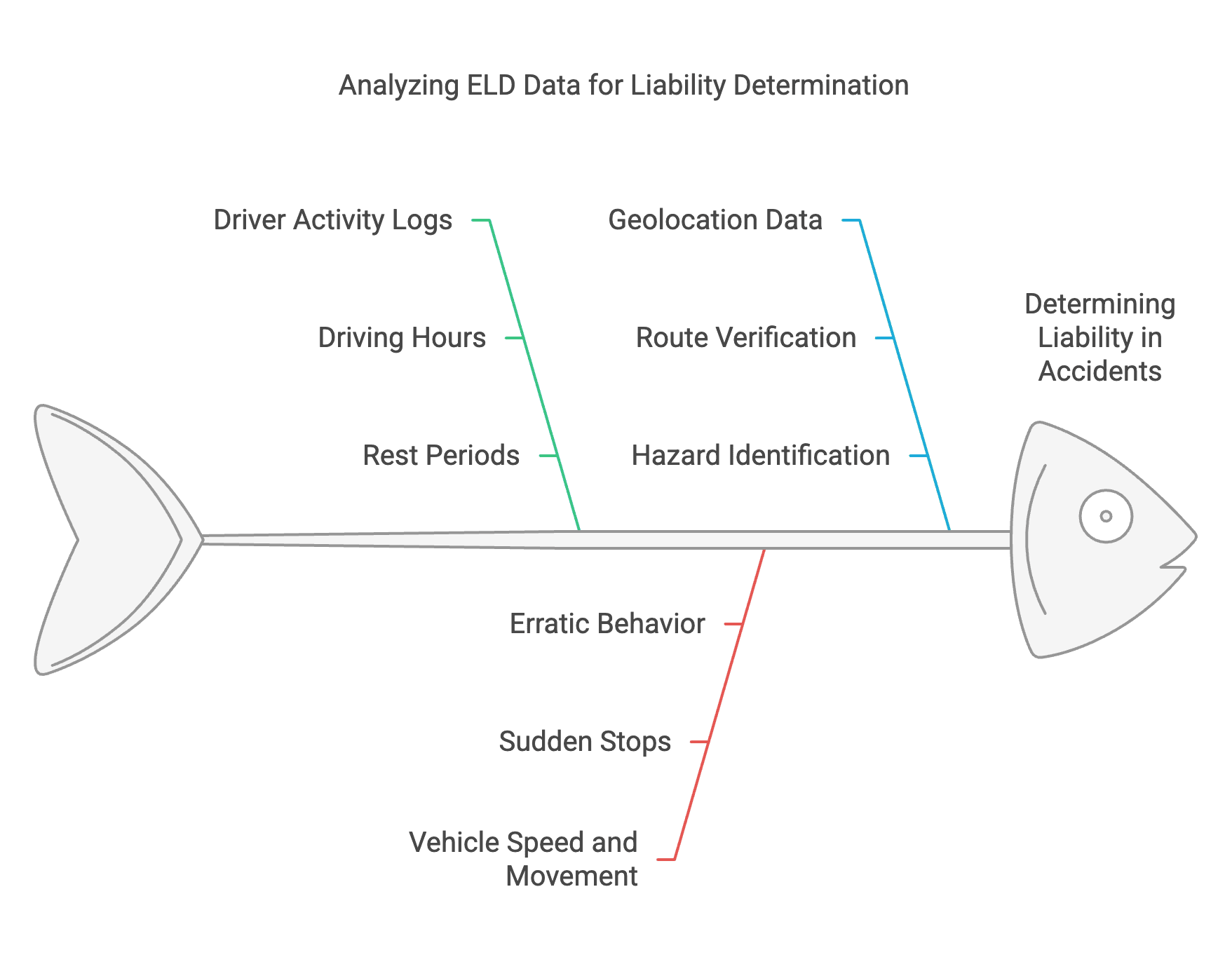Electronic Logging Devices (ELDs) are critical tools designed to monitor and ensure compliance with the Hours of Service (HOS) regulations mandated by the Federal Motor Carrier Safety Administration (FMCSA). These devices automatically record driving time, vehicle movements, engine activity, and location, eliminating the inaccuracies and risks associated with manual logging systems. By streamlining compliance, ELDs play a pivotal role in reducing fatigue-related accidents and enhancing road safety.
Compliance with Hours-of-Service Regulations
The FMCSA’s HOS rules are in place to prevent driver fatigue and ensure that commercial truck drivers operate within safe limits. ELDs help enforce these regulations by recording driving and rest times in real-time. The key HOS rules monitored by ELDs include:
- 11-Hour Driving Limit: Drivers may drive up to 11 hours after 10 consecutive hours off duty.
- 14-Hour Duty Limit: Drivers cannot operate a vehicle after 14 consecutive on-duty hours, including breaks and rest periods.
- 60/70-Hour Workweek Limits: Drivers must not exceed 60 hours in seven days or 70 hours in eight days, depending on the company’s operations.
ELD data provides undeniable evidence of compliance or violations, forming the backbone of legal arguments in truck accident cases.
How ELD Data Determines Liability
ELDs are invaluable in determining fault in truck accident investigations. Their data can be used to identify regulatory breaches, driver negligence, and operational lapses that may have contributed to an accident.
ELD records provide:
- Driver Activity Logs: Precise information on driving hours, rest periods, and duty cycles.
- Vehicle Speed and Movement: Details on vehicle operation leading to an accident, including sudden stops or erratic driving behavior.
- Geolocation Data: Exact location tracking to verify routes and identify potential hazardous zones.
This information helps establish whether the driver, trucking company, or a third party bears responsibility for the incident.
The Role of ELDs in Accident Reconstruction
Accident reconstruction is critical for understanding the sequence of events leading to a truck accident. ELD data, combined with other evidence such as dashcam footage and eyewitness reports, enhances this process by offering objective insights into:
- Driver Behavior: Analysis of sudden acceleration, harsh braking, or prolonged speeding.
- Vehicle Movement Patterns: Detailed tracking of the truck’s trajectory before and during the collision.
- Time and Location Context: Correlation with traffic and weather conditions at the time of the incident.
These insights enable attorneys and investigators to build a compelling narrative supporting victims’ claims.
Obligations of Trucking Companies Regarding ELDs
Trucking companies are responsible for ensuring that ELDs are properly installed, maintained, and utilized in their fleets.
They must:
- Install FMCSA-Compliant ELDs: Ensure all vehicles have certified devices that meet federal standards.
- Train Drivers and Staff: Provide comprehensive training on ELD usage and HOS compliance.
- Retain ELD Records: Maintain accurate logs for the legally mandated period to support potential investigations.
Failure to comply with these obligations can result in penalties and increased liability in accident cases. Courts often view non-compliance or tampering with ELD data as an admission of negligence, further strengthening the plaintiff’s case.
Challenges in Accessing and Using ELD Data
While ELD data is a powerful tool, accessing and interpreting it can be challenging. Trucking companies may withhold or alter records to protect themselves, necessitating legal intervention. Understanding ELD data requires technical expertise to connect the findings to specific violations or negligence.
Experienced attorneys play a crucial role in navigating these challenges. They can subpoena records, consult technical experts, and ensure that all relevant data is presented accurately in court. Their expertise transforms complex ELD data into compelling evidence that supports accident claims.
The Role of a Truck Accident Lawyer in ELD Cases
Truck accident cases often involve extensive legal and regulatory complexities. A skilled commercial vehicle accident attorney specializing in 18-wheeler accidents can:
- Secure and Analyze ELD Data: Obtain accurate logs to identify violations and negligence.
- Build a Comprehensive Case: Use ELD findings alongside other evidence to establish fault and calculate damages.
- Negotiate with Insurers: Counter tactics to minimize compensation by presenting irrefutable evidence.
- Advocate in Court: Present a compelling argument supported by data and expert testimony.
With the support of a qualified lawyer, victims can effectively navigate the legal system and secure the compensation they deserve.
Conclusion
Electronic Logging Devices are indispensable in modern trucking operations, ensuring compliance with safety regulations and providing critical evidence in truck accident cases. By offering accurate, real-time data, ELDs help determine liability, reconstruct accidents, and support victims’ claims. Trucking companies and drivers must adhere to strict standards, and failure can have significant legal consequences. Working with experienced attorneys who understand ELD data is essential to resolving truck accident cases fairly.







































